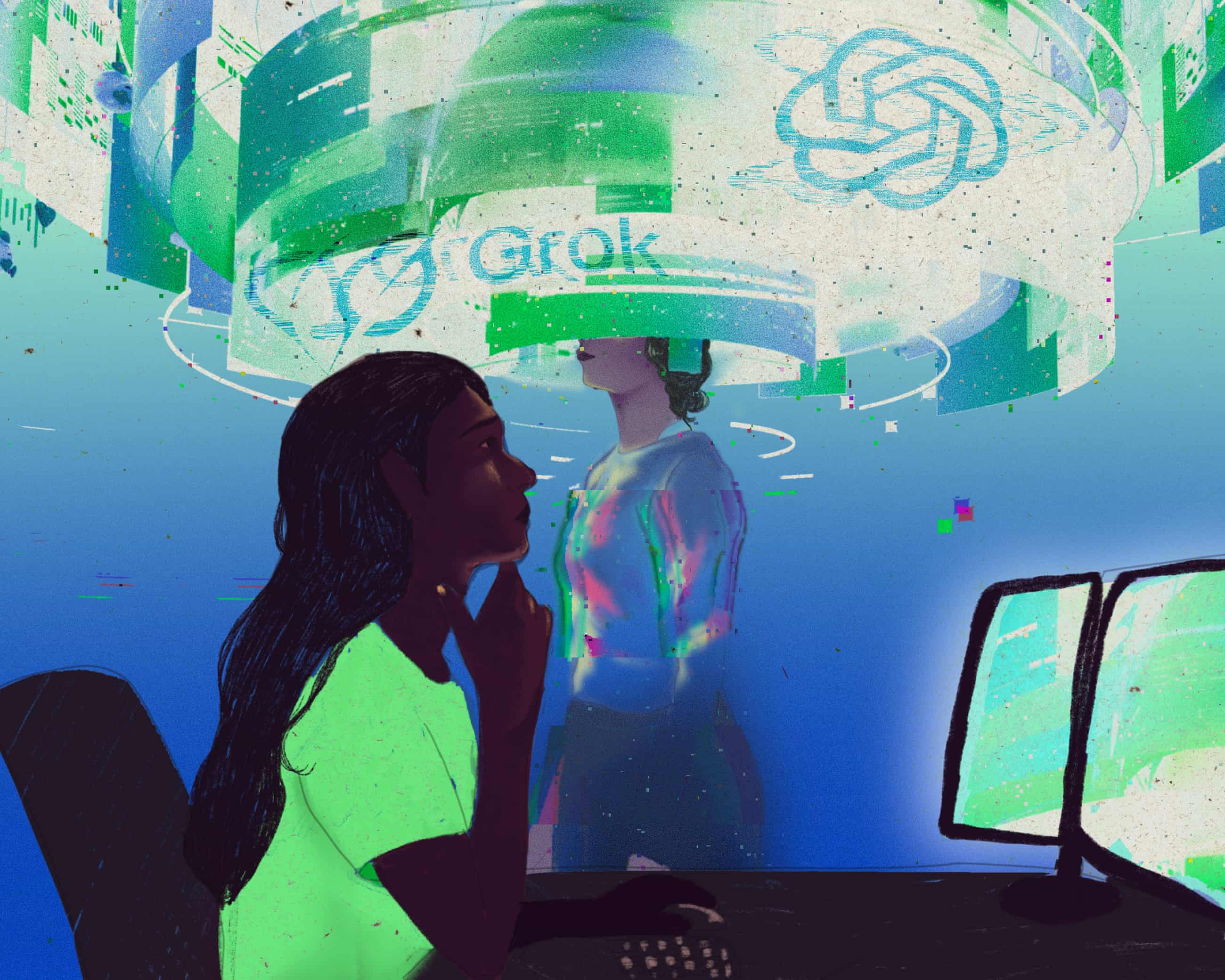Graham Linehan cleared of harassing trans activist but convicted of damaging phone

The Father Ted co-creator Graham Linehan has been cleared of harassing a transgender activist on social media but found guilty of criminal damage of their mobile phone outside a conference in London last year.The 57-year-old flew from Arizona to appear at Westminster magistrates court in person on Tuesday, where the judgment was delivered.Linehan denied harassing Sophia Brooks on social media between 11 and 27 October 2024, and a charge of criminal damage of their mobile phone on 19 October last year outside the Battle of Ideas conference in Westminster.Judge Clarke fined Linehan £500 and ordered him to pay costs of £650 and a statutory surcharge of £200.Linehan’s lawyer, Sarah Vine KC, asked that he be given 28 days to pay the full amount.
The trial heard that Brooks had begun taking photographs of delegates at the event during a speech by Fiona McAnena, the director of campaigns at Sex Matters, a UK gender-critical campaign group.Outside the event, the activist asked Linehan: “Why do you think it is acceptable to call teenagers domestic terrorists?”In response, the court heard that Linehan had called Brooks a “sissy porn-watching scumbag”, a “groomer” and a “disgusting incel”, with the complainant responding: “You’re the incel, you’re divorced.”The judge found that Linehan had taken Brooks’s phone because he was “angry and fed up”, and had damaged it by knocking it to the ground.She said that while the offence was not aggravated by the fact the complainant was transgender, it was because they were 17 years old at the time.She ruled that she was “not sure to the criminal standard” that Linehan had demonstrated hostility based on the complainant being transgender.
She added that she did not find the complainant “was as alarmed or distressed” as they had portrayed themself.The prosecutor Julia Faure Walker told the court that Linehan had written “repeated, abusive, unreasonable” social media posts about Brooks, whom he referred to as Tarquin.Vine said: “The background of this case involves what I would describe as provocative conduct by the complainant, and the raising of allegations in the service of, broadly speaking, political point-scoring.”She added that the costs to Linehan had “been enormous”, and resulted from a “momentary lapse of control” which led to behaviour that “could not be described as beyond reproach”.The comedy writer, who has well-publicised strong views on gender issues, said his “life was made hell” by trans activists, adding that the complainant was a “young soldier in the trans activist army”.
The writer added: “He was misogynistic, he was abusive, he was snide.He depended on his anonymity to get close to people and hurt them, and I wanted to destroy that anonymity.”He told journalists outside the court that he hoped the not guilty verdict would mean that “people in the future won’t be subject to those kind of tactics”.

One in four unconcerned by sexual deepfakes created without consent, survey finds
One in four people think there is nothing wrong with creating and sharing sexual deepfakes, or they feel neutral about it, even when the person depicted has not consented, according to a police-commissioned survey.The findings prompted a senior police officer to warn that the use of AI is accelerating an epidemic in violence against women and girls (VAWG), and that technology companies are complicit in this abuse.The survey of 1,700 people commissioned by the office of the police chief scientific adviser found 13% felt there was nothing wrong with creating and sharing sexual or intimate deepfakes – digitally altered content made using AI without consent.A further 12% felt neutral about the moral and legal acceptability of making and sharing such deepfakes.Det Ch Supt Claire Hammond, from the national centre for VAWG and public protection, reminded the public that “sharing intimate images of someone without their consent, whether they are real images or not, is deeply violating”

Can’t tech a joke: AI does not understand puns, study finds
Comedians who rely on clever wordplay and writers of witty headlines can rest a little easier, for the moment at least, research on AI suggests.Experts from universities in the UK and Italy have been investigating whether large language models (LLMs) understand puns – and found them wanting.The team from Cardiff University, in south Wales, and Ca’ Foscari University of Venice concluded that LLMs were able to spot the structure of a pun but did not really get the joke.An example they tested was: “I used to be a comedian, but my life became a joke.” If they replaced this with: “I used to be a comedian, but my life became chaotic,” LLMs still tended to perceive the presence of a pun

Civil liberties groups call for inquiry into UK data protection watchdog
Dozens of civil liberties campaigners and legal professionals are calling for an inquiry into the UK’s data protection watchdog, after what they describe as “a collapse in enforcement activity” after the scandal of the Afghan data breach.A total of 73 academics, senior lawyers, data protection experts and organisations including Statewatch and the Good Law Project, have written a letter to Chi Onwurah, the chair of the cross-party Commons science, innovation and technology committee, coordinated by Open Rights Group, calling for an inquiry to be held into the office of the information commissioner, John Edwards.“We are concerned about the collapse in enforcement activity by the Information Commissioner’s Office, which culminated in the decision to not formally investigate the Ministry of Defence (MoD) following the Afghan data breach,” the signatories state. They warn of “deeper structural failures” beyond that data breach.The Afghan data breach was a particularly serious leak of information relating to individual Afghans who worked with British forces before the Taliban seized control of the country in August 2021

Meet the AI workers who tell their friends and family to stay away from AI
When the people making AI seem trustworthy are the ones who trust it the least, it shows that incentives for speed are overtaking safety, experts sayKrista Pawloski remembers the single defining moment that shaped her opinion on the ethics of artificial intelligence. As an AI worker on Amazon Mechanical Turk – a marketplace that allows companies to hire workers to perform tasks like entering data or matching an AI prompt with its output – Pawloski spends her time moderating and assessing the quality of AI-generated text, images and videos, as well as some factchecking.Roughly two years ago, while working from home at her dining room table, she took up a job designating tweets as racist or not. When she was presented with a tweet that read “Listen to that mooncricket sing”, she almost clicked on the “no” button before deciding to check the meaning of the word “mooncricket”, which, to her surprise, was a racial slur against Black Americans.“I sat there considering how many times I may have made the same mistake and not caught myself,” said Pawloski

Bro boost: women say their LinkedIn traffic increases if they pretend to be men
Do your LinkedIn followers consider you a “thought leader”? Do hordes of commenters applaud your tips on how to “scale” your startup? Do recruiters slide into your DMs to “explore potential synergies”?If not, it could be because you’re not a man.Dozens of women joined a collective LinkedIn experiment this week after a series of viral posts suggested that, for some, changing their gender to “male” boosted their visibility on the network.Others rewrote their profiles to be, as they put it, “bro-coded” – inserting action-oriented online business buzzwords such as “drive”, “transform” and “accelerate”. Anecdotally, their visibility also increased.The uptick in engagement has led some to speculate that an in-built sexism in LinkedIn’s algorithm means that men who speak in online business jargon are more visible on its platform

Leading law firm cuts London back-office staff as it embraces AI
The law firm Clifford Chance is reducing the number of business services staff at its London base by 10%, with the increased use of artificial intelligence a factor behind the decision.The head of PwC has also indicated that AI may lead to fewer workers being hired at the accountancy and consulting group.Clifford Chance, one of the largest international law firms, is making about 50 roles redundant in areas such as finance, HR and IT with role changes for up to 35 other jobs, according to the Financial Times, which first reported the cuts.Greater use of AI and reduced demand for some business services are behind the cuts, the FT report said, as well as more work being done at offices outside Clifford Chance’s main UK-US operations, in countries such as Poland and India.A spokesperson for Clifford Chance said: “In line with our strategy to strengthen our operations, we can confirm we are proposing changes to some of our London-based business professional functions

EasyJet profits climb as package holidays sell well despite price rises

FCA makes inquiries into WH Smith accounting error that wiped almost £600m off value

UK bank shares rise after reports of budget tax reprieve

Australia is bringing in ‘world first’ minimum pay for food delivery drivers – here’s how it will work

‘Replacing the old, stuffy department store’: John Lewis boss on its revamp

Black Friday discounts fail to offer cheapest prices, Which? research finds